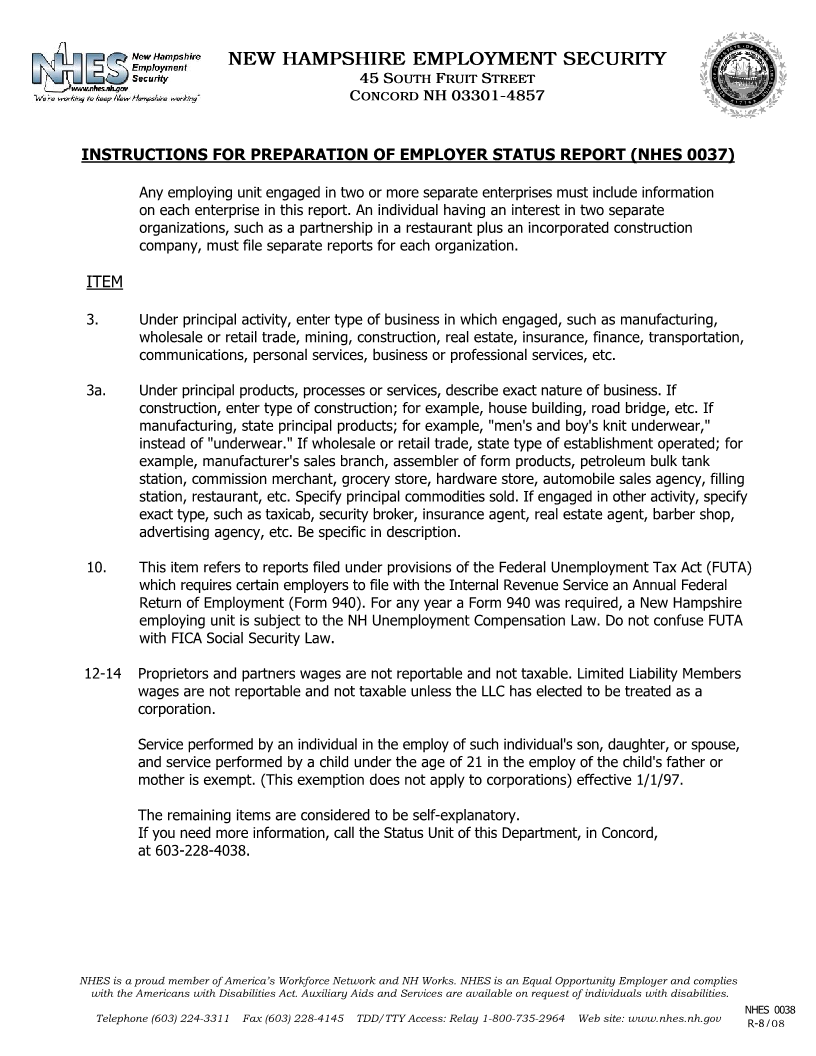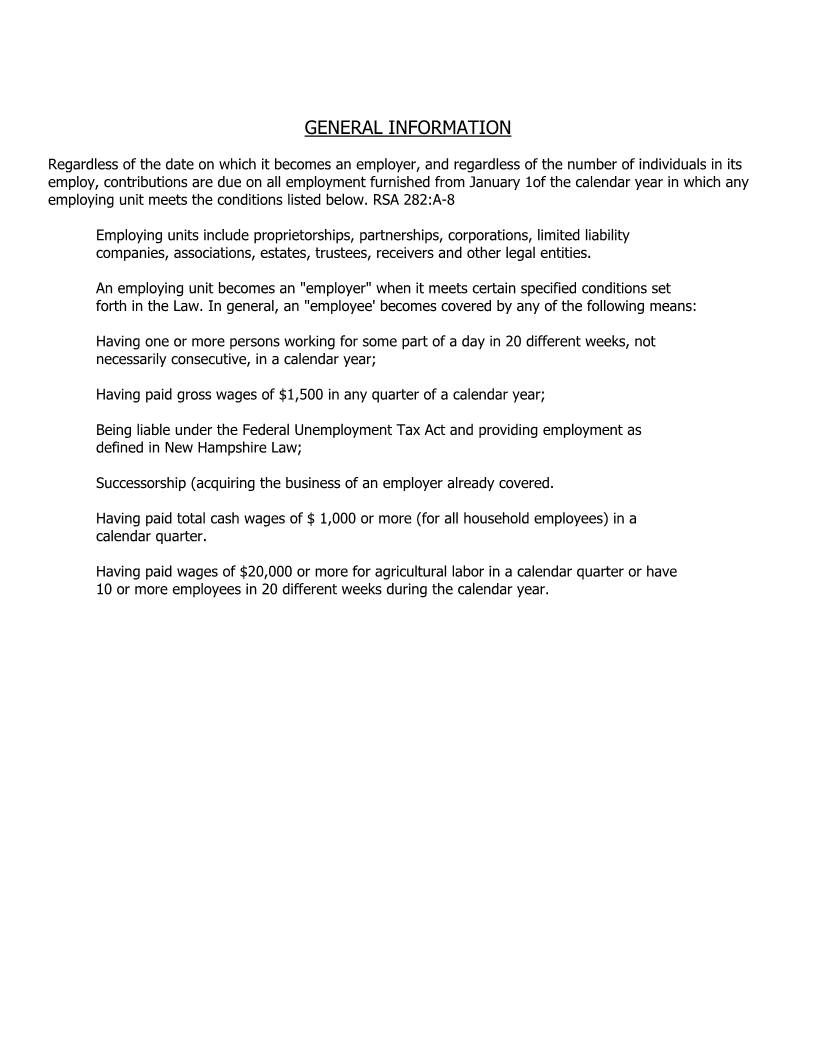
Enlarge image
NEW HAMPSHIRE EMPLOYMENT SECURITY
45 S OUTH RUIT TREETF S
CONCORD NH 03301-4857
INSTRUCTIONS FOR PREPARATION OF EMPLOYER STATUS REPORT (NHES 0037)
Any employing unit engaged in two or more separate enterprises must include information
on each enterprise in this report. An individual having an interest in two separate
organizations, such as a partnership in a restaurant plus an incorporated construction
company, must file separate reports for each organization.
ITEM
3. Under principal activity, enter type of business in which engaged, such as manufacturing,
wholesale or retail trade, mining, construction, real estate, insurance, finance, transportation,
communications, personal services, business or professional services, etc.
3a. Under principal products, processes or services, describe exact nature of business. If
construction, enter type of construction; for example, house building, road bridge, etc. If
manufacturing, state principal products; for example, "men's and boy's knit underwear,"
instead of "underwear." If wholesale or retail trade, state type of establishment operated; for
example, manufacturer's sales branch, assembler of form products, petroleum bulk tank
station, commission merchant, grocery store, hardware store, automobile sales agency, filling
station, restaurant, etc. Specify principal commodities sold. If engaged in other activity, specify
exact type, such as taxicab, security broker, insurance agent, real estate agent, barber shop,
advertising agency, etc. Be specific in description.
10. This item refers to reports filed under provisions of the Federal Unemployment Tax Act (FUTA)
which requires certain employers to file with the Internal Revenue Service an Annual Federal
Return of Employment (Form 940). For any year a Form 940 was required, a New Hampshire
employing unit is subject to the NH Unemployment Compensation Law. Do not confuse FUTA
with FICA Social Security Law.
12-14 Proprietors and partners wages are not reportable and not taxable. Limited Liability Members
wages are not reportable and not taxable unless the LLC has elected to be treated as a
corporation.
Service performed by an individual in the employ of such individual's son, daughter, or spouse,
and service performed by a child under the age of 21 in the employ of the child's father or
mother is exempt. (This exemption does not apply to corporations) effective 1/1/97.
The remaining items are considered to be self-explanatory.
If you need more information, call the Status Unit of this Department, in Concord,
at 603-228-4038.
NHES is a proud member of America’s Workforce Network and NH Works. NHES is an Equal Opportunity Employer and complies
with the Americans with Disabilities Act. Auxiliary Aids and Services are available on request of individuals with disabilities.
NHES 0038
Telephone (603) 224-3311 Fax (603) 228-4145 TDD/TTY Access: Relay 1-800-735-2964 Web site: www.nhes.nh.gov R-8/08
